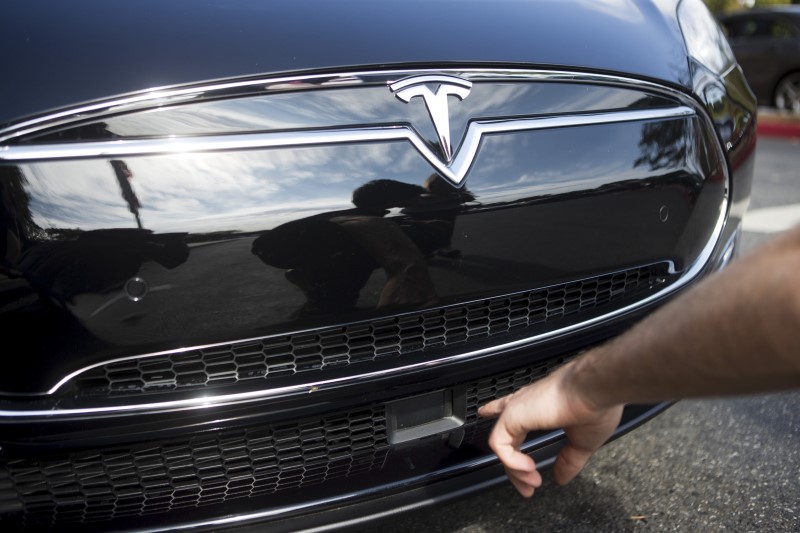Tesla falls in premarket as 1Q deliveries fall short of Musk’s target
2023.04.03 05:32

© Reuters.
By Geoffrey Smith
Investing.com — Tesla (NASDAQ:) stock fell in premarket trading on Monday after the electric carmaker’s deliveries in the first quarter indicated the strain of growing competition.
Tesla said on Sunday it had delivered a record 422,875 vehicles in the first quarter of the year, up 4% from the previous three months and up 36% from the same quarter in 2022.
However, it was well short of the target that Chief Executive Elon Musk has set for the company this year. Musk had said on the company’s largest earnings call that Tesla would deliver 2 million vehicles this year, which would represent growth of over 50%.
The number was somewhere in the middle of a wide range of estimates that reflected high uncertainty, and was below survey estimates published by Reuters and FactSet, but above Bloomberg’s.
They come against the backdrop of a slowing economy and intensifying price competition – notably in China, the world’s largest market for electric vehicles. Tesla had slashed its prices in January in response to sluggish demand, but the price cuts of as much as 20% do not appear to have revived it to the extent hoped. That’s partly because rivals such as Xpeng (HK:) (NYSE:) and BYD (SZ:) (OTC:) also cut prices aggressively in the wake of Tesla’s move.
Affordability has become more important for Tesla in recent months as high inflation and a rise in layoffs across high-paying sectors of the U.S. economy such as technology and finance have started to hurt its core customer base. While it was a big beneficiary of the Inflation Reduction Act which extended subsidies for electric vehicles last year, it stands to lose some access to tax credits later this month as new U.S. rules that aim to reduce Chinese content in electric cars come into effect.
Tesla stock was down 2% by 05:10 ET (09:10 GMT), a moderate correction after a 50% rally from the lows of late 2022. It has still lost around half of its value since peaking in November 2021, due largely to higher interest rates and to successive sales of large blocks of shares by Musk in order to finance his acquisition of social media site Twitter.








